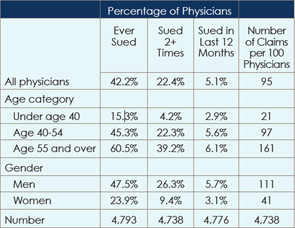More patients every year are traveling outside of the U.S. in search of lower health bills and treatments that might be unavailable to them at home.



The health care reform law passed in March created a $50 million demonstration program to test alternatives to the current medical liability system. But reaction is mixed as to whether the new project will help fix what the physician and medical liability insurance communities view as a flawed and inefficient system.

In this economy, investing in advertising as a way to increase profits is an attractive idea. But, before you reach out to a marketing firm, let me tell you about a recent scenario that happened to one of my physician clients.

Seven-year-old Michael is scheduled to have a hemangioma removed from his face at the Arkansas Children’s Hospital (ACH) Ambulatory Surgery Center in Little Rock. The morning of surgery, he and his mother meet with child life specialists Cassandra C. James, MS, CCLS, and Camille Dante, MS, CCLS, who show him pictures of the operating room. They let him play with an anesthesia mask and a pulse oximeter, and talk about what to expect when he goes to sleep.
The shooting of a doctor and two patients at Johns Hopkins Hospital in Baltimore in September sent a shudder of fear through all physicians, but for those who knew the late otolaryngologist John Kemink, MD, it was particularly saddening.
The patient-centered medical home’s star appears to be rising. Thirty-eight states are testing this model of care in some way, according to the National Academy for State Health Policy. The federal health system reform law, passed this spring, includes several provisions encouraging the concept.
Dr. Sims has eloquently identified the value of diversity not only in otolaryngology, but also its contribution to the strength of the U.S. as a nation. Drs. Kuppersmith and Thomas have responded to his editorial indicating steps that the AAO-HNS has taken and is currently taking to increase diversity.
My Viewpoint was intended to call attention to a problem and inspire us to act with more alacrity.
We read with great interest Dr. Steven Sim’s recent op-ed, “More of the Same: Why isn’t otolaryngology becoming more diverse?” in ENT Today (Viewpoint, Sept. 2010).

Neil Chheda, MD, assistant professor of otolaryngology at the University of Florida in Gainesville, realized a few years ago that nearly half of his patients on proton pump inhibitors were taking them incorrectly.